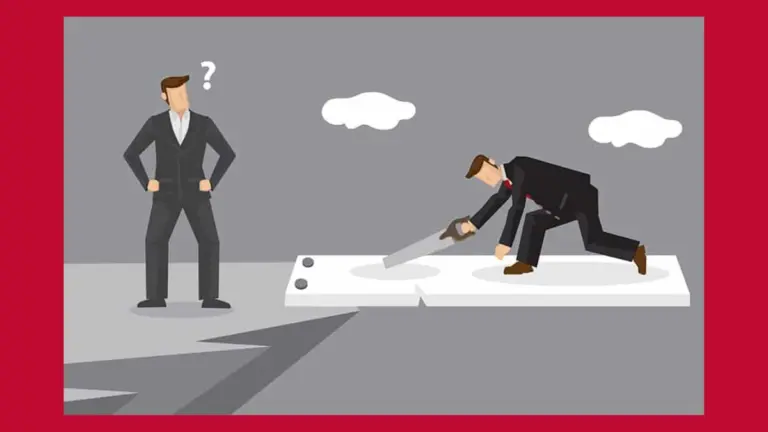If you want to learn 7 simple habits to be more productive at work, you’re in the right place. This article will guide you through understanding work productivity habits and their importance. You’ll discover how good habits can boost your work and transform your day. We’ll share tips on time management, focus improvement, and creating routines that lead to success. You’ll also find strategies for maintaining a healthy work-life balance. Get ready to enhance your efficiency and achieve more!
Understanding Work Productivity Habits
What Are Work Productivity Habits?
Work productivity habits are the daily routines and behaviors that help you get things done efficiently. These habits can range from how you plan your day to how you handle distractions. Think of them as the building blocks of your work life. When you develop good habits, you set yourself up for success.
Why They Matter for You
These habits are crucial for your overall effectiveness at work. When you adopt strong productivity habits, you can manage your time better, focus on important tasks, and feel less stressed. This means you can achieve your goals without burning out.
The Impact of Good Habits on Your Work
Good productivity habits can change the game for you. Here’s how:
| Impact | Description |
|---|---|
| Increased Efficiency | You complete tasks faster and with fewer mistakes. |
| Better Focus | You concentrate on what truly matters, reducing distractions. |
| Lower Stress Levels | You feel more in control, leading to a calmer work environment. |
| Higher Quality Work | You produce better results because you’re not rushed or distracted. |
By incorporating 7 simple habits to be more productive at work, you can experience these benefits firsthand. For instance, starting your day with a clear plan can help you stay on track. Or, taking short breaks can refresh your mind and keep your energy up.
Time Management Techniques to Boost Your Day
Simple Time Management Tips
Managing your time well can make a huge difference in your productivity. Here are some simple tips to help you get started:
- Set Clear Goals: Know what you want to achieve. Break your goals into smaller, manageable tasks.
- Use a Timer: Try the Pomodoro Technique. Work for 25 minutes, then take a 5-minute break. This keeps you focused.
- Limit Distractions: Turn off notifications on your phone. Find a quiet space to work.
- Review Your Day: At the end of the day, look back at what you accomplished. This helps you see where you can improve.
How to Prioritize Your Tasks
Not all tasks are created equal. Some are more important than others. Here’s how you can prioritize your tasks effectively:
- Make a List: Write down everything you need to do.
- Identify Urgent vs. Important: Use the Eisenhower Matrix to help you decide:
- Urgent and Important: Do these tasks first.
- Important but Not Urgent: Schedule time for these.
- Urgent but Not Important: Delegate if possible.
- Neither Urgent nor Important: Consider dropping these.
| Task Type | Action Needed |
|---|---|
| Urgent and Important | Do it now |
| Important but Not Urgent | Plan it |
| Urgent but Not Important | Delegate or limit time |
| Neither Urgent nor Important | Eliminate |
Creating a Daily Schedule for Success
A daily schedule can be your best friend in staying productive. Here’s how to create one that works for you:
- Start with Your Goals: Look at your goals and tasks for the day.
- Block Time for Each Task: Assign specific time slots for each task.
- Include Breaks: Don’t forget to add short breaks to recharge.
- Be Flexible: Sometimes things don’t go as planned. Adjust your schedule as needed.
Focus Improvement Strategies for Better Results
Techniques to Enhance Your Focus
To boost your focus, you can try several practical techniques. Here are some effective methods:
- Set Clear Goals: Break your tasks into smaller, manageable goals. This will help you stay on track and feel a sense of achievement as you complete each one.
- Use the Pomodoro Technique: Work for 25 minutes, then take a 5-minute break. After four rounds, take a longer break of 15-30 minutes. This method can help keep your mind fresh and focused.
- Limit Multitasking: Focus on one task at a time. Juggling multiple tasks can scatter your attention and reduce your productivity.
Creating a Distraction-Free Workspace
Your workspace plays a big role in your ability to concentrate. Here are some tips to create a distraction-free environment:
- Declutter Your Desk: Remove unnecessary items from your workspace. A clean desk helps clear your mind.
- Use Noise-Canceling Headphones: If you work in a noisy area, these can help you tune out distractions and maintain focus.
- Personalize Your Space: Add a few personal touches, like plants or photos, to make your workspace inviting without being distracting.
| Tip | Description |
|---|---|
| Declutter Your Desk | Keep only essential items on your desk. |
| Use Noise-Canceling Headphones | Block out distracting sounds. |
| Personalize Your Space | Add personal touches that inspire you. |
The Role of Breaks in Maintaining Focus
Taking breaks is crucial for maintaining your focus. When you work for long periods without rest, your brain can become tired and less effective. Here’s why breaks matter:
- Recharge Your Mind: Short breaks allow your brain to rest and rejuvenate, helping you return to work with renewed energy.
- Improve Creativity: Stepping away from your work can spark new ideas and perspectives.
- Prevent Burnout: Regular breaks can help you avoid feeling overwhelmed and stressed.
Remember, taking time to recharge is not a waste; it’s an investment in your productivity.
Daily Routines for Success at Work
Morning Routines That Set You Up
Starting your day right can make all the difference in your productivity. Here are some habits you can adopt:
- Wake Up Early: Give yourself extra time. This can help you start your day without feeling rushed.
- Hydrate: Drink a glass of water first thing. It wakes up your body and mind.
- Exercise: Even a short workout can boost your mood and energy levels.
- Plan Your Day: Take a few minutes to write down your top tasks. This keeps you focused.
| Morning Habit | Benefits |
|---|---|
| Wake Up Early | Reduces stress and increases time. |
| Hydrate | Boosts energy and concentration. |
| Exercise | Enhances mood and productivity. |
| Plan Your Day | Improves focus and clarity. |
Evening Routines to Reflect and Prepare
At the end of the day, it’s important to wind down and prepare for tomorrow. Here are some evening habits you can try:
- Review Your Day: Look at what you accomplished. This can help you feel proud and motivated.
- Set Goals for Tomorrow: Write down what you want to achieve the next day. This keeps you on track.
- Disconnect from Screens: Spend at least 30 minutes away from screens before bed. This helps your mind relax.
- Read or Meditate: These activities can calm your mind and prepare you for sleep.
| Evening Habit | Benefits |
|---|---|
| Review Your Day | Builds a sense of achievement. |
| Set Goals for Tomorrow | Keeps you focused for the next day. |
| Disconnect from Screens | Improves sleep quality. |
| Read or Meditate | Reduces stress and promotes relaxation. |
The Benefits of Consistency in Your Routine
Having a consistent routine is like having a roadmap. It helps you navigate through your day with ease. When you stick to your routines, you build good habits. These habits can help you feel more in control and less stressed.
With 7 simple habits to be more productive at work, you can create a solid foundation for your daily routine. Consistency is key. The more you practice these habits, the more natural they will become.
Effective Work Habits to Maximize Efficiency
Identifying Your Most Productive Times
To maximize your productivity, it’s crucial to pinpoint when you work best. Everyone has different energy levels throughout the day. Here’s how you can find your sweet spots:
- Track Your Energy: For one week, jot down when you feel most alert. Is it in the morning, after lunch, or late at night?
- Analyze Your Patterns: Look for trends. Do you tackle tough tasks better at certain times?
- Plan Accordingly: Once you know your peak times, schedule your most important tasks during those hours.
By aligning your tasks with your energy peaks, you can work smarter, not harder.
Tools to Help You Stay Organized
Staying organized is half the battle in becoming productive. Here are some tools that can help:
| Tool | Purpose |
|---|---|
| Todoist | Task management |
| Trello | Project organization |
| Google Calendar | Schedule planning |
| Evernote | Note-taking |
Using these tools can help you keep your tasks in check and your mind clear. With everything laid out, you’ll find it easier to focus on what matters.
The Power of Small Changes in Your Work Habits
Sometimes, small adjustments can lead to big results. Here are a few changes you can make:
- Set Timers: Use the Pomodoro Technique. Work for 25 minutes, then take a 5-minute break. It helps maintain focus.
- Declutter Your Workspace: A tidy desk can lead to a tidy mind. Remove distractions and keep only what you need.
- Limit Social Media: Set specific times for checking social media. This can prevent you from getting sidetracked.
These minor tweaks can greatly enhance your daily productivity. Remember, it’s often the little things that make the biggest difference.
Work-Life Balance Strategies for Productivity
Setting Boundaries Between Work and Home
To boost your productivity, setting clear boundaries between work and home is crucial. This means creating a distinct line that separates your professional life from your personal life. Here are some practical steps to help you do that:
- Designate a Workspace: Choose a specific area in your home for work. This helps signal to your brain that it’s time to focus.
- Set Work Hours: Stick to a schedule. When your work hours are over, log off and transition to personal time.
- Communicate with Family: Let your loved ones know your work hours. This way, they can respect your time and avoid interruptions.
By taking these steps, you create a structured environment that fosters productivity while allowing you to enjoy your home life.
Tips for Managing Stress Effectively
Managing stress is key to maintaining productivity. Here are some effective strategies:
- Take Breaks: Short breaks can refresh your mind. Step away from your desk, stretch, or take a short walk.
- Practice Mindfulness: Spend a few minutes each day focusing on your breath. This can help clear your mind and reduce anxiety.
- Stay Organized: Use to-do lists or planners. This helps you keep track of tasks and reduces the feeling of being overwhelmed.
- Reach Out for Support: Don’t hesitate to talk to friends or colleagues if you’re feeling stressed. Sharing your feelings can lighten the load.


